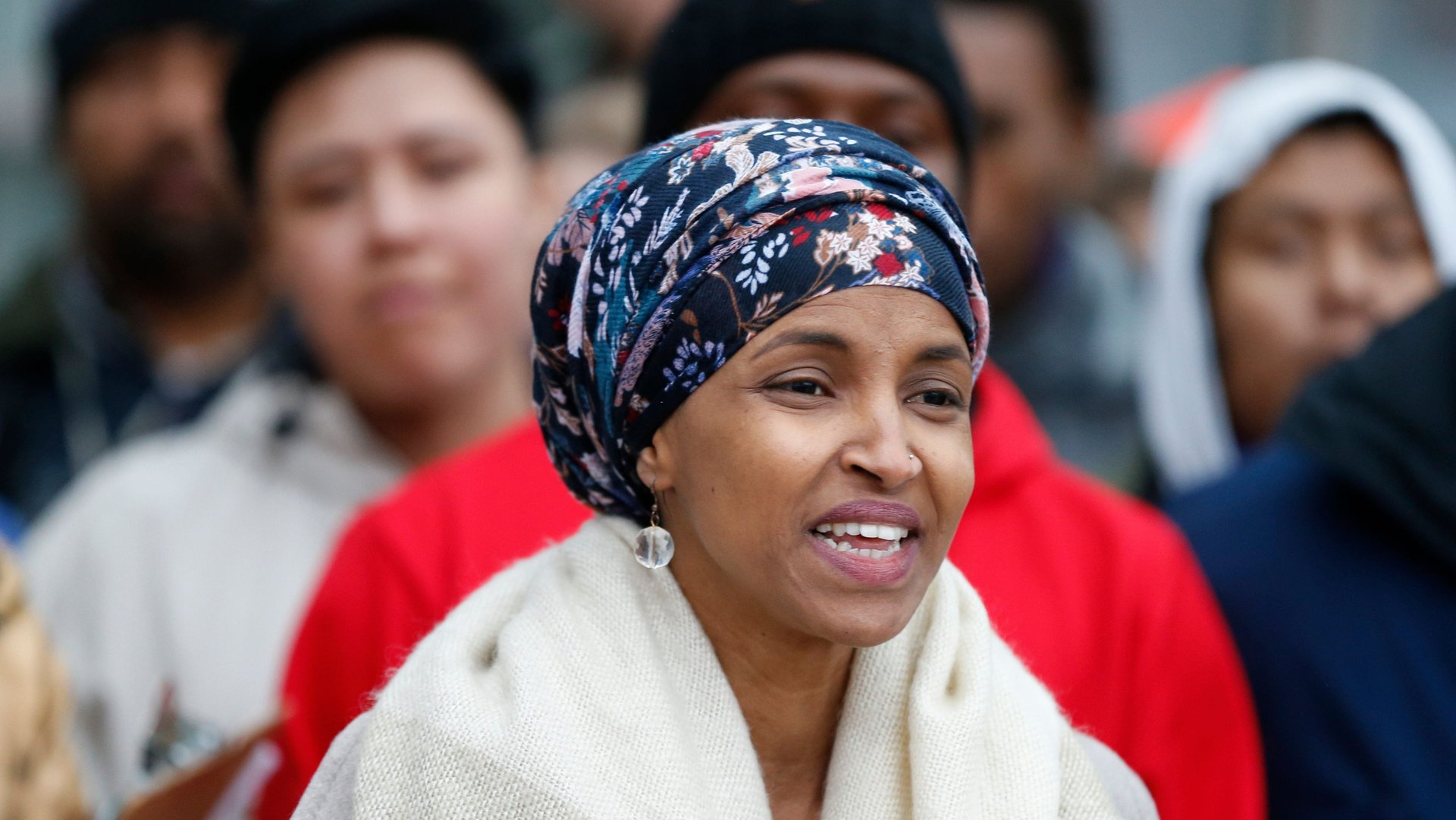Despite Trump, Somali-Americans overcame scrutiny to make political history in Minnesota
Two days before the 2016 US presidential elections, Donald Trump visited Minnesota and told supporters that faulty refugee vetting processes allowed large numbers of Somalis to come to the state. They came here, he said, “without your knowledge, without your support or approval, and with some of them then joining ISIS and spreading their extremist views all over our country and all over the world.”


Two days before the 2016 US presidential elections, Donald Trump visited Minnesota and told supporters that faulty refugee vetting processes allowed large numbers of Somalis to come to the state. They came here, he said, “without your knowledge, without your support or approval, and with some of them then joining ISIS and spreading their extremist views all over our country and all over the world.”
His characterization of Somalis was deemed “dangerous,” with critics saying the remarks were a setback for the community who worked hard to become part of the state and nation’s fabric. Around 150,000 Somalis live in the US according to United Nations estimates, with many of them living in Minnesota than any other state.
On Tuesday night (Aug. 14), voters in that state cast Trump’s comments aside and delivered a resounding victory for immigrants and women. The ongoing primary elections are being seen as a test of Trump’s influence and whether Republicans or Democrats will control both houses of Congress next year.
Ilhan Omar, 36, won the Democratic primary in Minnesota’s 5th congressional district, likely becoming the first Somali-American to serve in Congress. Omar, who fled the Somali civil war and lived in a Kenyan refugee camp, won the seat left behind by representative Keith Ellison, another Muslim who is running for state attorney general in November. Along with Rashida Tlaib, a Palestinian-American, the two are poised to become the first Muslim women elected to Congress.
In other trailblazing wins, Hodan Hassan won the Democratic primary race for district 62A in Minneapolis, likely becoming the second Somali-American woman to be elected to the Minnesota state legislature. Another Somali, Mohamud Noor, won the primary for Omar’s seat to represent District 60B in southeast Minneapolis.
The historic wins represent a hopeful moment for Somalis in the state, who have faced scrutiny even as they pushed for more integration and made political strides. The Trump travel ban on Somalia in Jan. 2017 affected the community, with many wondering if they would ever be reunited with loved ones. Since Trump’s election, the spike in the number of African migrants sent back home has especially affected the Somalis, with some deportees accusing the US Immigration and Customs Enforcement of maltreatment and abuse during removals.